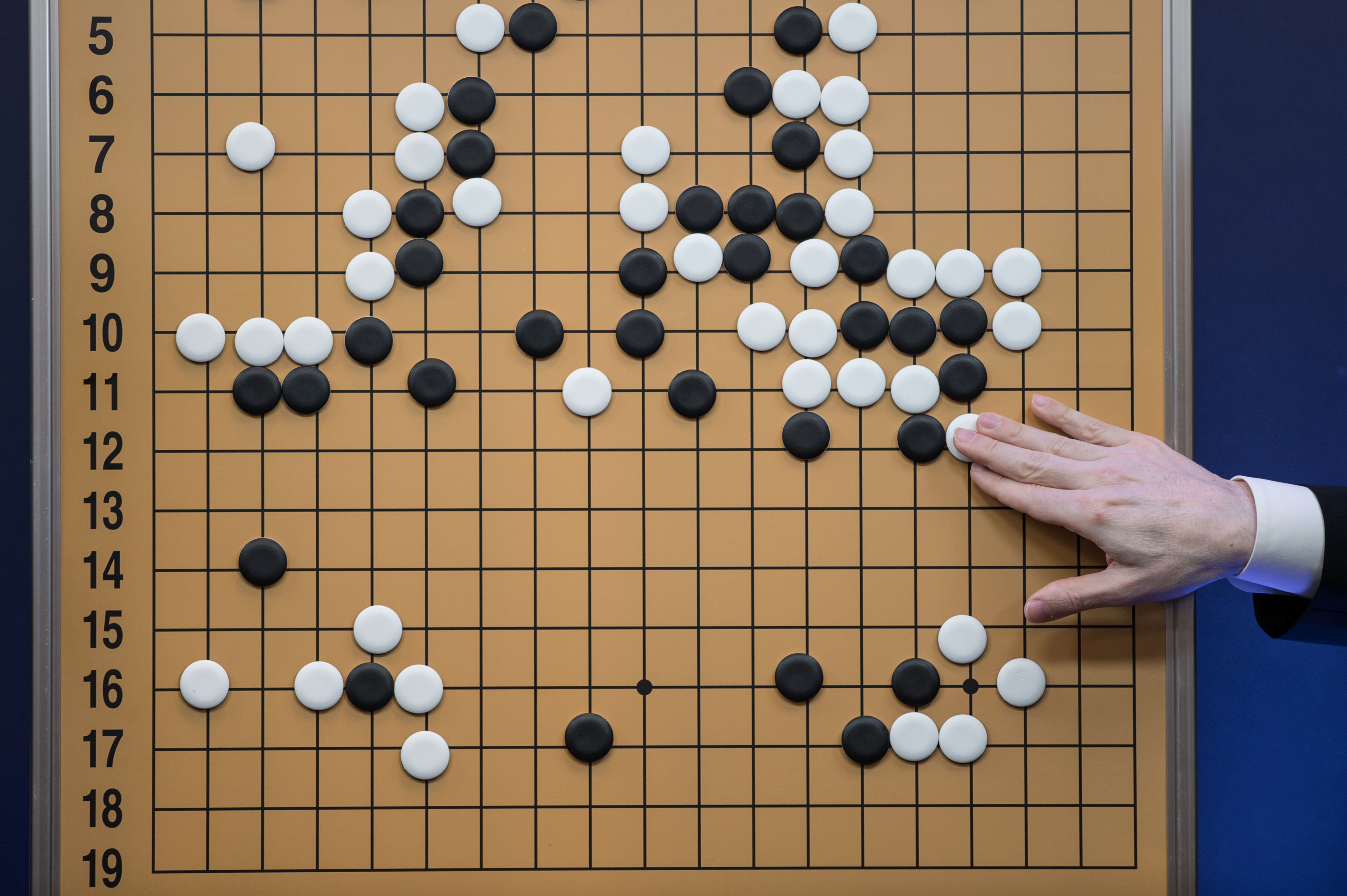Google develops AI that learns by itself
Program simulates board game to work out how to play without being taught

A free daily email with the biggest news stories of the day – and the best features from TheWeek.com
You are now subscribed
Your newsletter sign-up was successful
Google-owned artificial intelligence (AI) firm DeepMind has developed a new software program that learned by itself how to play the ancient Chinese strategy game Go in just three days.
Called AlphaGo Zero - after the AlphaGo programme that defeated a champion of the game in 2015 - the AI software simulated matches against itself to learn from its mistakes, says UK-based DeepMind.
The AI is so powerful that, having been told only the rules of Go, it derived thousands of years of human knowledge of the game before inventing better moves of its own.
The Week
Escape your echo chamber. Get the facts behind the news, plus analysis from multiple perspectives.

Sign up for The Week's Free Newsletters
From our morning news briefing to a weekly Good News Newsletter, get the best of The Week delivered directly to your inbox.
From our morning news briefing to a weekly Good News Newsletter, get the best of The Week delivered directly to your inbox.
And the software could be reprogrammed to discover information in other fields, such as “drug discovery” and “particle physics”, says The Verge.
DeepMind’s chief executive, Demis Hassabis, told BBC News: “We’re quite excited because we think this is now good enough to make some real progress on some real problems, even though we’re obviously a long way from full AI”.
Project leader David Silver told the news site that he hopes AI programs similar to AlphaGo Zero can be used for “advancing the frontiers of science and medicine”.
But while such technology could solve some serious global problems, humanity needs to “keep a close eye on the ethical dilemmas” that come with a machine that can think for itself, warns BBC technology reporter Rory Cellan-Jones.
A free daily email with the biggest news stories of the day – and the best features from TheWeek.com
However, there are “ few signs that AlphaGo Zero and its ilk will either steal our jobs or threaten to make humanity obsolete”, for now, at least, he adds.
-
 The 8 best TV shows of the 1960s
The 8 best TV shows of the 1960sThe standout shows of this decade take viewers from outer space to the Wild West
-
 Microdramas are booming
Microdramas are boomingUnder the radar Scroll to watch a whole movie
-
 The Olympic timekeepers keeping the Games on track
The Olympic timekeepers keeping the Games on trackUnder the Radar Swiss watchmaking giant Omega has been at the finish line of every Olympic Games for nearly 100 years
-
 Will AI kill the smartphone?
Will AI kill the smartphone?In The Spotlight OpenAI and Meta want to unseat the ‘Lennon and McCartney’ of the gadget era
-
 Claude Code: Anthropic’s wildly popular AI coding app
Claude Code: Anthropic’s wildly popular AI coding appThe Explainer Engineers and noncoders alike are helping the app go viral
-
 Will regulators put a stop to Grok’s deepfake porn images of real people?
Will regulators put a stop to Grok’s deepfake porn images of real people?Today’s Big Question Users command AI chatbot to undress pictures of women and children
-
 Most data centers are being built in the wrong climate
Most data centers are being built in the wrong climateThe explainer Data centers require substantial water and energy. But certain locations are more strained than others, mainly due to rising temperatures.
-
 The dark side of how kids are using AI
The dark side of how kids are using AIUnder the Radar Chatbots have become places where children ‘talk about violence, explore romantic or sexual roleplay, and seek advice when no adult is watching’
-
 Why 2025 was a pivotal year for AI
Why 2025 was a pivotal year for AITalking Point The ‘hype’ and ‘hopes’ around artificial intelligence are ‘like nothing the world has seen before’
-
 AI griefbots create a computerized afterlife
AI griefbots create a computerized afterlifeUnder the Radar Some say the machines help people mourn; others are skeptical
-
 The robot revolution
The robot revolutionFeature Advances in tech and AI are producing android machine workers. What will that mean for humans?